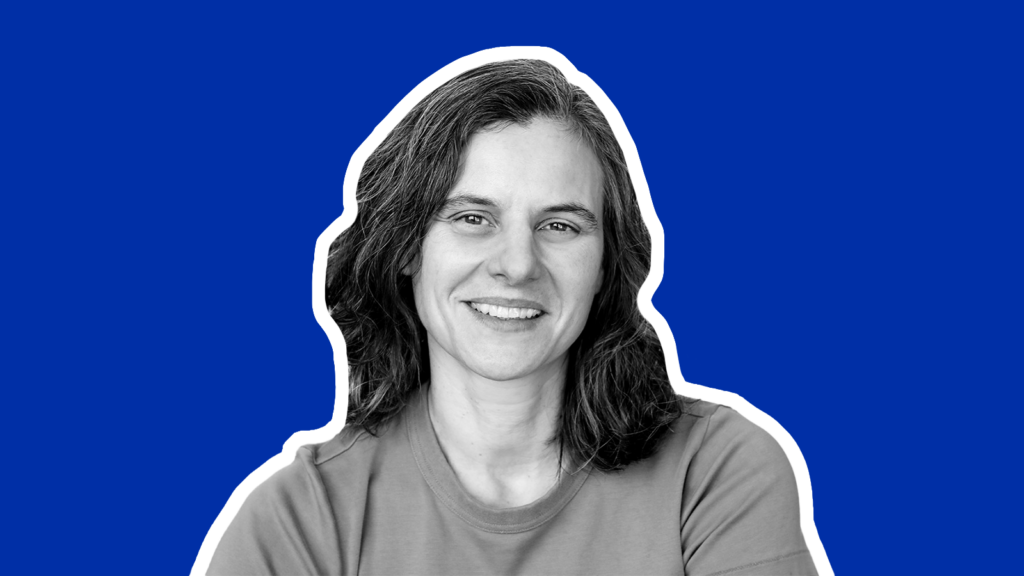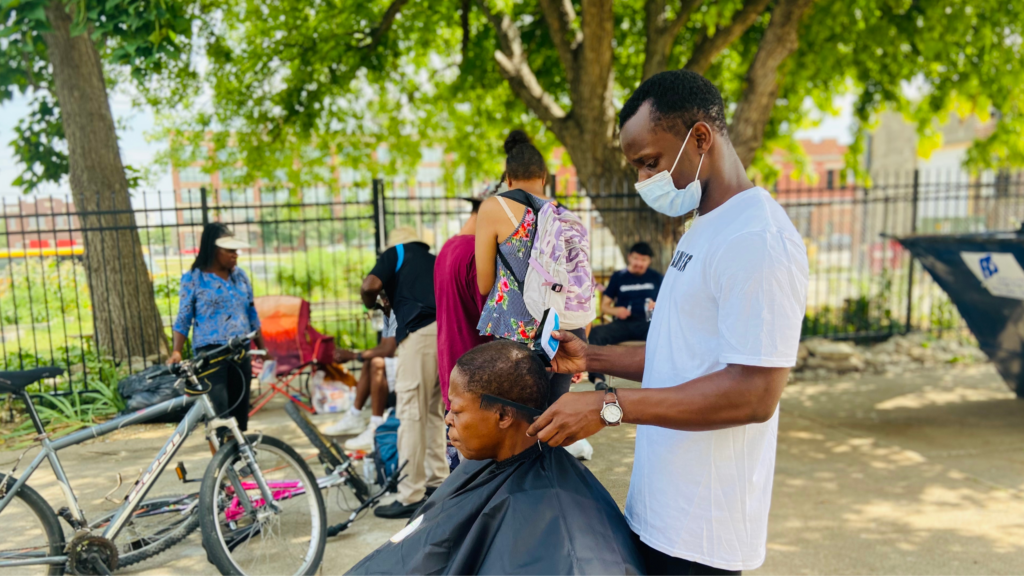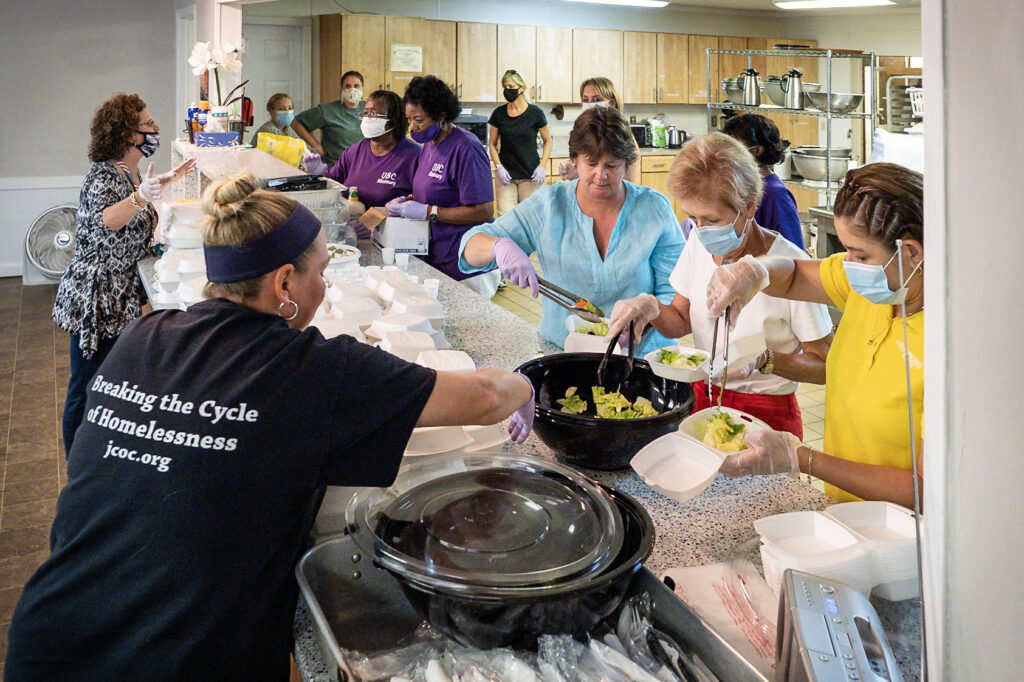This article is part of Divine Interventions, an ongoing series examining how faith-based organizations around the world are responding to social crises in their own backyards.
Houses of worship have long been the backbone of America’s social safety net, responding to the poverty around them as part of their spiritual call to serve their brethren.
That work has become more crucial than ever as the United States faces an unprecedented homelessness crisis, exacerbated by a deadly opioid crisis and pandemic plus climbing inflation and rents. More than 580,000 people in America were experiencing homelessness in 2020, per the National Alliance to End Homelessness’s most recent data.
“Houses of worship are filled with folks who know the world is not the way it should be,” says Bob Smietana, author of Reorganized Religion. “It’s not a world where everyone has what they need. And houses of worship know that their job is to help change that.”
Across the religious spectrum, people of faith have been at the forefront of the response. Faith-based groups provide about 30% of emergency beds for single adults and families who are homeless, and about two-thirds of the food pantries and distribution sites that work with the Feeding America food bank network are faith-based. It’s not just shelters and food pantries, either: Faith-based responses to homelessness and housing insecurity include developing tiny home villages, rental assistance programs, mortgage funds and affordable housing built on their own property, among a slew of other strategies.
Crucially, Smietana notes, faith-based organizations also have the values, people, resources and locations to pull off such projects. “Houses of worship have religious teaching that tells them to help their neighbors,” he says. “They have organized and energized groups of volunteers and donors who can be put to work to help their neighbors; and they have buildings and other properties that can be used to offer shelter and other services.”
Analyst News spoke to leaders of three organizations in the United States — from a Jewish spiritual organization developing affordable housing on its Los Angeles property to a Christian faith-based group providing haircuts and showers in Arizona — about how they’re meeting their unhoused neighbors’ needs.
Building affordable senior housing
For the last 19 years, the Los Angeles Jewish congregation IKAR had been holding its religious events on rented property. Five years ago, the organization was able to purchase a parcel of land in west L.A. for its synagogue.
“As we thought about what it meant to build a home for ourselves, we wanted to think very seriously about what it meant to live our values,” says Brooke Wirtschafter, IKAR’s director of community organizing. “It became clear to us that the greatest humanitarian need in Los Angeles right now is our housing and homelessness crisis.”
Nearly 42,000 unhoused individuals experience homelessness at any given night in the city, per one 2022 count. Seeking to provide a place within their own home to curb the epidemic, IKAR is now working with an affordable housing developer to build 55 permanent supportive housing units for seniors on its land.
To do so, the congregation first pushed local lawmakers to cut costly city parking requirements for newly constructed houses of worship developing affordable housing on their properties. The new law has allowed other religious institutions in L.A. to begin considering similar projects.
“Using our faith to respond to [this] crisis is the greatest opportunity we have,” Wirtschafter says. “Those that are unhoused are really the ‘stranger’ in our modern society.”

The affordable housing development, expected to begin occupancy in early 2027, is part of IKAR’s longstanding effort to support unhoused Angelenos.
In 2017, IKAR partnered with Safe Parking LA, which provides safe parking lots for unhoused people living in their cars to spend the night. Wirtschafter says this allowed congregants to build relationships with the homeless community living around them. “It was a really impactful program for our community because it helped our folks get to know more intimately what the stories and experiences of people who are unhoused are really like.”
Through IKAR’s social justice initiatives, members have seen the consequences of the city’s housing insecurity crisis firsthand. “The system is broken and poorly designed,” Wirtschafter says. Seeing the myriad barriers preventing the unhoused from exiting the cycle of homelessness, worshippers at IKAR believe it is their responsibility to help curb the issue by providing services, advocating for more effective housing policy, and working to build affordable housing wherever possible. — Aansa Mirza
The transformative power of mobile showers
For Arizona’s Heaven’s Healing Hands, it started with 200 McDonald’s sandwiches.
In 2017, Guy and Joanne Penns began distributing sandwiches and water bottles to their neighborhood’s swelling unhoused population after service at the Kingdom of the Valley Christian Church, the Phoenix megachurch where they were ministers. The couple quickly realized that, between Arizona’s extreme heat and its growing rate of homelessness, these individuals needed much more than just weekly food distribution.
“It was like putting a BandAid on a gunshot wound,” says Guy Penns. The couple launched Heaven’s Healing Hands, a local nonprofit serving veterans and individuals experiencing homelessness with food, clothing, medical treatment and personal hygiene amenities. Over 20 collaborators — including Dr. Jeannine Hinds of TinyHouseDoc, a mobile healthcare unit — joined forces to address issues plaguing the community: housing, legal, medical, mental health, substance abuse.
Working with the human services campus at the Society of St. Vincent de Paul narrowed their focus to providing mobile hygiene services. At the campus, which sheltered 400 to 500 people during monthly “pop-up villages,” unhoused individuals could access over a dozen barbers and beauticians who would offer shaves and haircuts.

Meanwhile, the campus had fewer than 10 showers available. “You could literally be on that campus in that building and not be able to take a shower for nine months,” Guy Penns says. By 2019, Heaven’s Healing Hands had one major goal: providing 12,000 mobile showers annually to those in need.
“Personal hygiene is probably the most intimate form of healthy hygiene that an individual can have,” Guy Penns explains. Working with nonprofit mobile shower provider LavaMaeX, the group worked to restore dignity to Phoenix’s unhoused individuals. “The pictures alone of people being transformed from where they were when we met them to now taking a shower, getting their hair and beards done … That person had a new attitude. They had a new outlook. They had new opportunities now to go out and do a presentation of themselves that they had not seen in a long time.”
Since 2017, Heaven’s Healing Hands has served approximately 31,000 people; last year, the group placed 72 individuals in temporary or permanent housing through its partners. The organization now aims to multiply its impact by fundraising for its own mobile shower service: a three-shower unit with a shower, toilet and sink system, expected to cost about $75,000. — Kanita Tariq
Breaking the cycle of homelessness
In Virginia Beach, Virginia, leaders of the Judeo-Christian Outreach Center have made it their mission to serve their local unhoused population and feed the hungry for over 36 years. The center, which focuses mainly on helping single homeless adults, has developed various strategies to help “break the cycle of suffering through homelessness and hunger,” says development director Kristin Ward.
The JCOC’s main aim is to ensure that homelessness is “rare, brief and non-recurring,” Ward says. At this time, they are able to house 55 people. They offer assistance and meals until individuals find affordable housing and sustain themselves.
In 2021, Ward says, the faith-based center successfully housed Timothy, a disabled man who was just 16 years old when he was abandoned by his family. He had been homeless for over 35 years and has now finally achieved a level of stability, having moved into his own one-bedroom apartment with the help of JCOC’s housing specialists. “It’s time,” he told the JCOC. “My body is getting tired of sleeping on the cement.”

For individuals for whom sleeping on the streets has become the norm, the transition back to living in a house can be overwhelming. Getting accustomed to sleeping in a confined space, sleeping on soft bedding and having to carry house keys may feel unfamiliar, Ward explains.
The center also has a day-support program where they provide case support to individuals that were not able to get a spot to stay in the center. There, they offer showers, access to computers, mail service, laundry, meals and housing support — all crucial to building long term stability.
Ward says homelessness tends to occur when people are forced to decide whether to pay their rent or buy groceries. These days, with grocery prices at an all-time high, putting food on the table can often take precedence. The outreach center tries to prevent the onset of homelessness by providing meals to those who are struggling so that they are more likely to be able to afford rent. The JCOC has aims to expand further. This summer they have plans to begin work on a three-story building, where they will soon be able to offer 38 affordable housing units. Ward says they hope that efforts like this will “dramatically increase the number of people we lead out of hunger and homelessness.” — Tehmina Mirza

